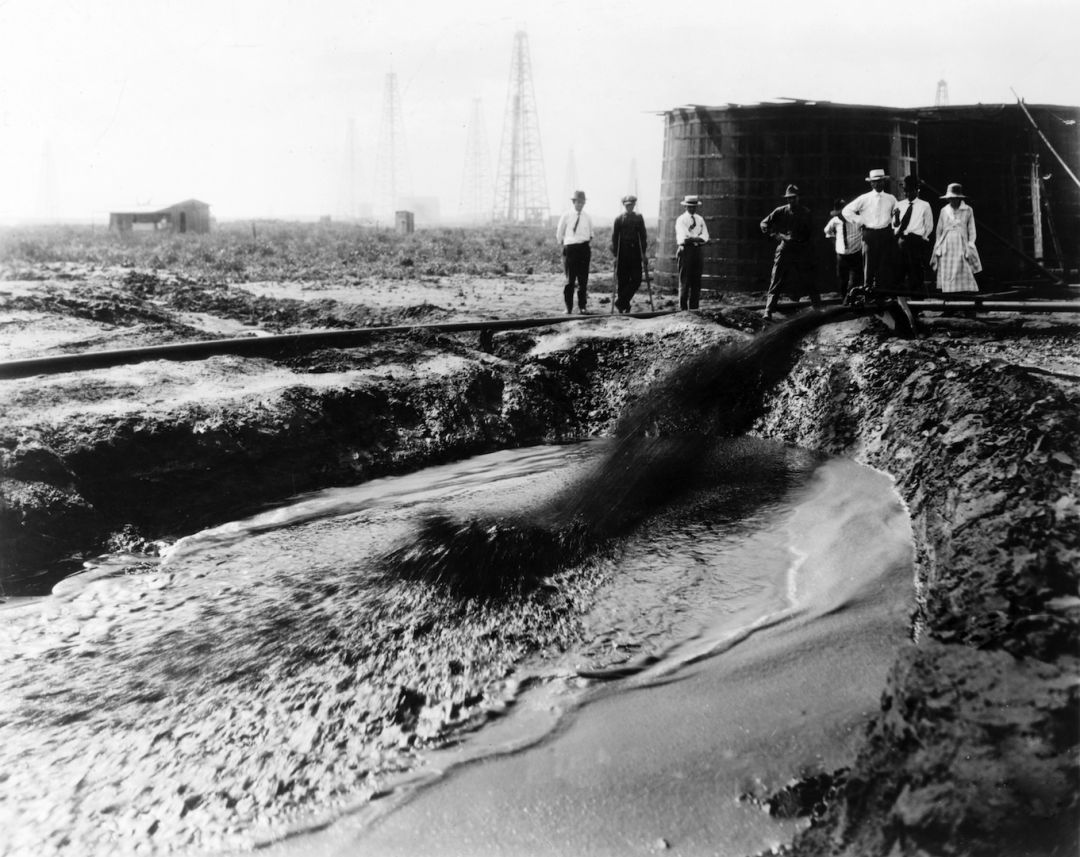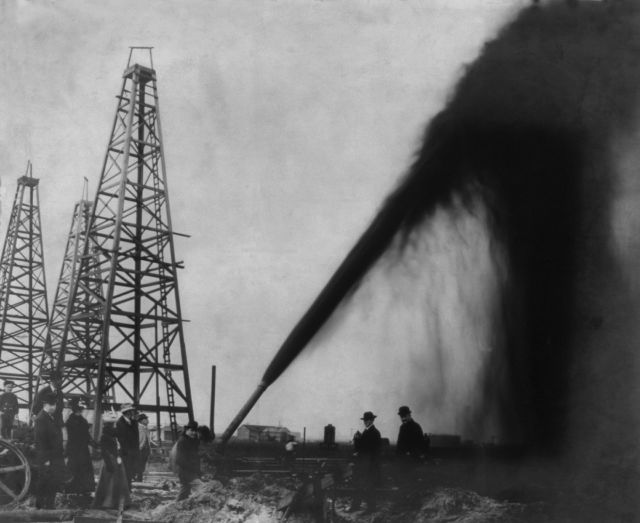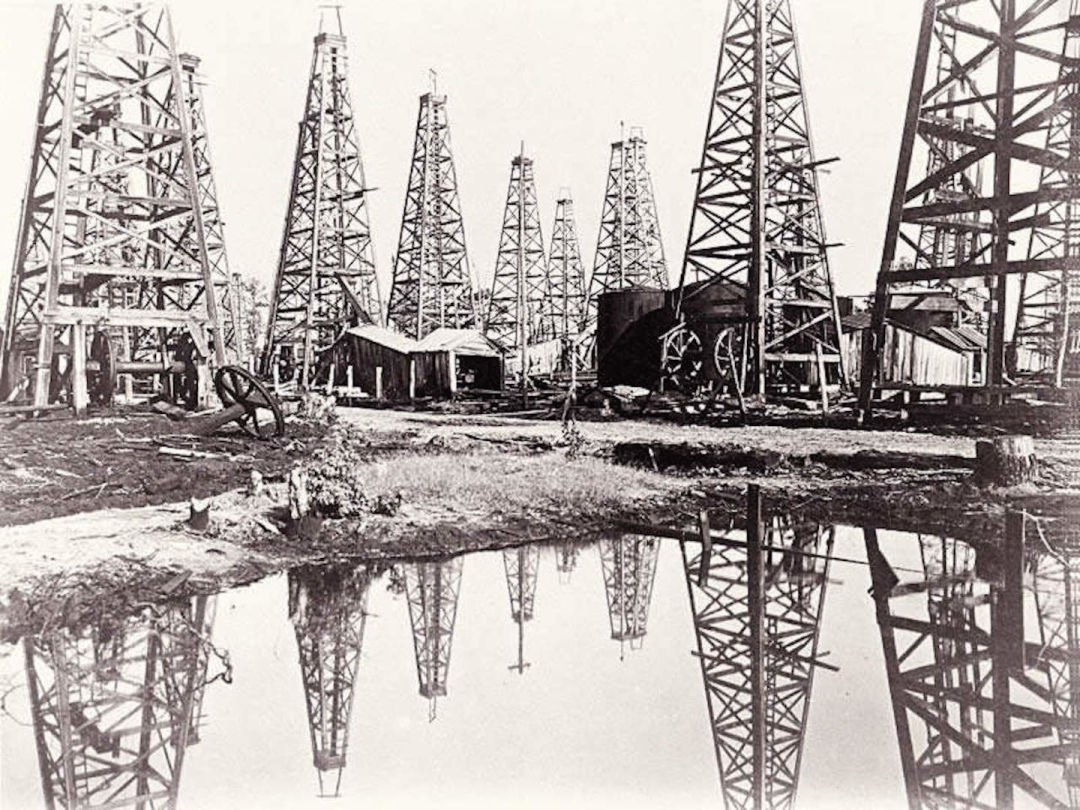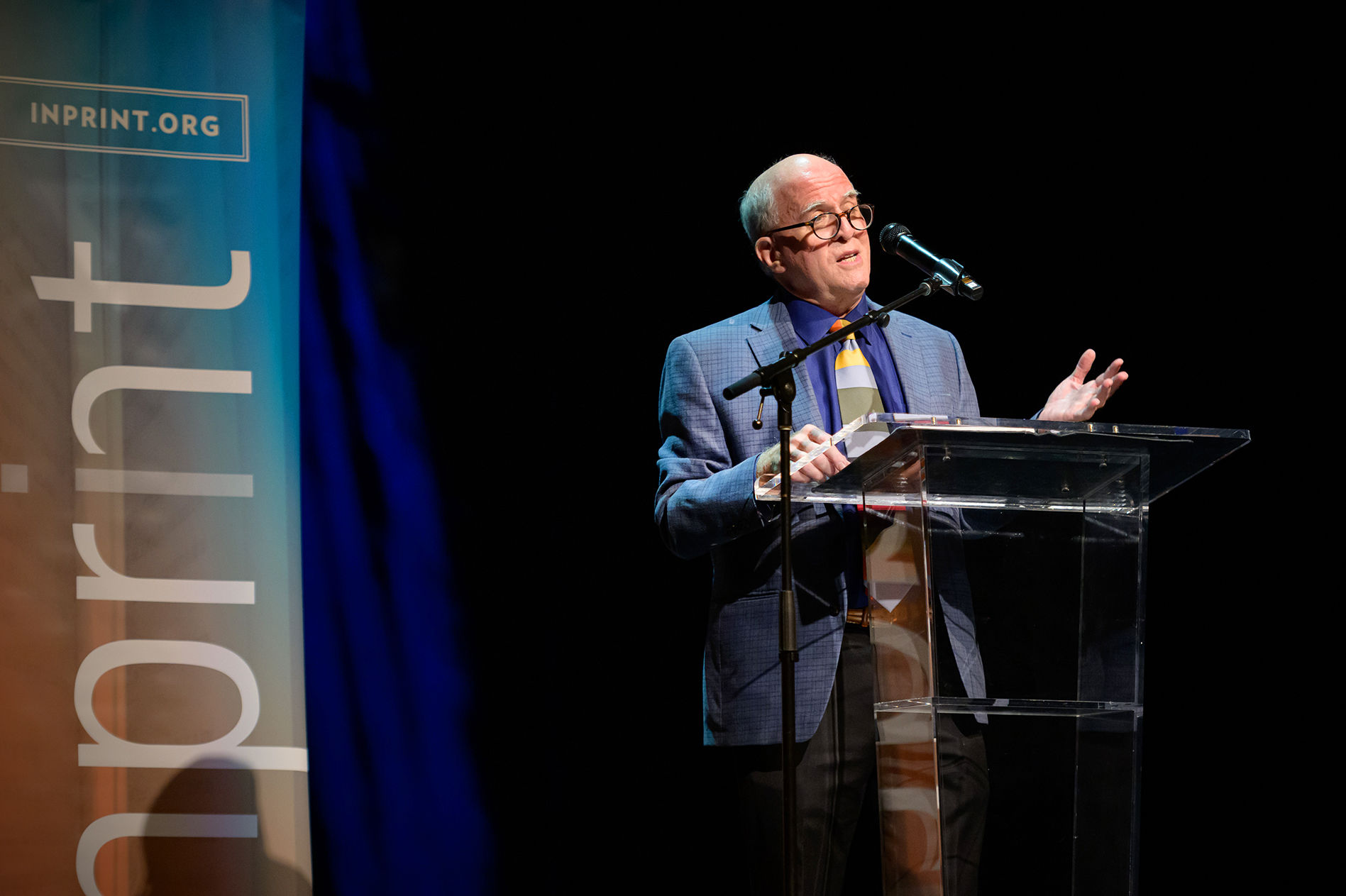There Will Be Blood (and Oil)—Local Historian Edition

Image: Shutterstock
Houston is a notable international economic hub for the oil and gas industry, but seldom do people think about the industry’s extensive and impactful beginnings throughout Texas during the early 20th century. Local historian Bartee Haile delves into the early years of the state’s oil metropolises with his most recent work, Texas Boomtowns: A History of Blood & Oil, and discusses the book tonight at Brazos Bookstore.
Texas Boomtowns tells of several Texan towns’ illustrious histories as centers of oil drilling and the reckless crime that spread from the cities’ work sites to their many brothels. Haile, who has written substantial material on Texas history for the past few decades in his syndicated newspaper column, “This Week in Texas History,” relied on his never-ending archive of resources to put together a paperback that is a wide-open exploration of Texas’ oil strongholds.
Before his book signing at Brazos, Haile explains how he came about writing Texas Boomtowns, the research process for the book, and the parallels between the oil industry then and now.
How did you get into writing Texas Boomtowns?
I was contacted in 2013 by a publisher in Charleston, South Carolina, to write a book for them on a topic of my choice. That’s when I wrote my first book for them, about Bonnie & Clyde and other outlaws. Then I was talking to my editor about staying on a one-book-a-year schedule and I had an idea for a book, but I figured it was written about already. But lo and behold, no one has ever done it. So when I found out, I went ahead and wrote Texas Boomtowns.
What drew you to this particular part of Texas history?
What drew me to this history was that books on these oil booms had never been really written. Having written 1,700 newspaper columns, I had touched on this subject—early oil booms and the effect they had on communities and their inherent lawlessness. No one during this time knew what was going on—they were teaching themselves [the process] as they went along.

Image: Shutterstock
Describe the beginning process of researching for the book.
Having written my Texas history column, you can just imagine the research I have on hand. And when I began there was no Internet, it was a whole different process. Also, I have my own personal library with far more books than I’ll ever finish reading. I think what I learned is how to expedite research. I start out thinking that I’ll write an article one way and son of a gun—it turns out very different. After 30-something odd years of research, you learn the shortcuts and streamline it from a time standpoint.
What were some difficulties you ran into while writing?
First and foremost, that so little had been written. I’ll give an example: I mention the Mexia oil boom from the 1920s. It so happened that my newspaper column is in Mexia. I thought, “Oh, I will have contacts there.” But no one there wants to talk about it. People in smaller towns are pretty much like family—anything that is disgraceful, they don’t talk about it as if nothing happened. When I flipped through Mexia’s centennial book, there was no mention of the lawlessness during the oil boom. That created a real problem on writing the Mexia chapter.
What was the most surprising piece of information that you gathered from your research?
There were two things: I’m not an expert on the oil industry, and I’m not a big fan of it, given the problems it has caused with fossil fuels. But I’m taken back at how they had no idea what they were doing during the first 25 years of the oil boom. The technology wasn’t there and they weren’t sharing what they were doing with each other—it was amateur hour. And it was like that for 25 years! The major companies like Texaco, Shell, etc. had roots in the early Texas oil boom. But these people weren’t learning anything. It was just a feeding frenzy to make as much money as they could. The booms that were mentioned in the early chapters of the book didn't last more than three years because of all their waste. The Spindletop rig gushed for nine days because no one knew how to cap it. Nothing had been learned in a decade and a half.

What connections could you make from Texas as an oil & gas state now with how it was decades ago?
I usually don’t want to get into the politics of it. But in the context of the book, yes, I see similarities. You have to ask yourself, “Have they not learned any more than that in the past century?” With the leak in 1901 and then the BP leak in the Gulf a few years ago, it’s just a different version of the same phenomenon. There’s a well at the bottom of the Gulf running wild and it makes you wonder: Are they that dumb? Or are they really that reckless? I don't have an answer for that and I don’t know if anyone really does. With the fracking or the offshore drilling, it’s beyond them, as individuals and as an industry.
What would you like readers to take away from this book?
First of all, I’d like for people to see that the Texas we see today would be very different if it weren’t for the discovery of oil in 1901 and the development of the oil industry. We were the Saudi Arabia [of oil drilling] before Saudi Arabia. The companies had a great impact on our economy and our culture. I want to give people an understanding of how it all begin and how it was total chaos. We have to ask: Does the industry still benefit us?
March 1. 7. Free. 2421 Bissonnet St. 713-523-0701. brazosbookstore.com




